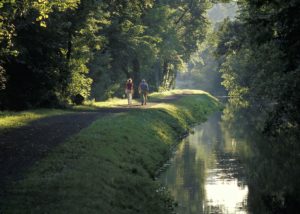For Immediate Release: February 21, 2012
Renew Growing Greener Coalition to Legislature: Corbett Funding Cuts to Environmental Programs Undermine Shale Legislation
(HARRISBURG, PA) The Renew Growing Greener Coalition, the largest coalition of conservation, recreation and environmental organizations in the Commonwealth, today urged the Legislature to reject cuts to environmental, conservation and recreation programs in the Governor’s proposed 2012-2013 budget.
“With Pennsylvania’s land, water and air facing significant threats and impacts due to Marcellus Shale development, we should be increasing, not decreasing, funding for the programs that protect these vital resources,” said Andrew Heath, executive director of the Renew Growing Greener Coalition. “The funding contained in the Marcellus Shale legislation was meant to help address the environmental impacts of natural gas drilling, but there would actually be less funding available for these purposes if the Legislature approves the cuts to environmental, conservation and recreation programs proposed in the Governor’s budget.”
Under the proposed budget, the Corbett administration has recommended:
- Using more than $37.5 from the Environmental Stewardship Fund to pay for debt service, leaving just $23 million available for Growing Greener programs and projects, the lowest amount of funding in recent decades.
- Transferring $30 million from the Keystone Recreation, Park and Conservation Fund to the general fund, and permanently eliminating this popular and important conservation and recreation program. This is the largest cut in conservation funding in state history.
- Diverting $20.5 million in dedicated farmland preservation funding from the cigarette tax to the general fund for 2012 and beyond.
“These cuts undermine the progress made in the Marcellus Shale legislation to increase investments in these programs,” said Heath. “We are calling on our legislative champions who support Growing Greener to prevent this from happening.”
Together, these programs have supported thousands of park and trail projects throughout the Commonwealth, preserved thousands of acres of family farmland, conserved thousands of acres of threatened open space and protected hundreds of miles of streams and waterways. In addition, they have contributed and leveraged billions of dollars to the Pennsylvania economy by helping to boost tourism, create jobs and generate revenue.
